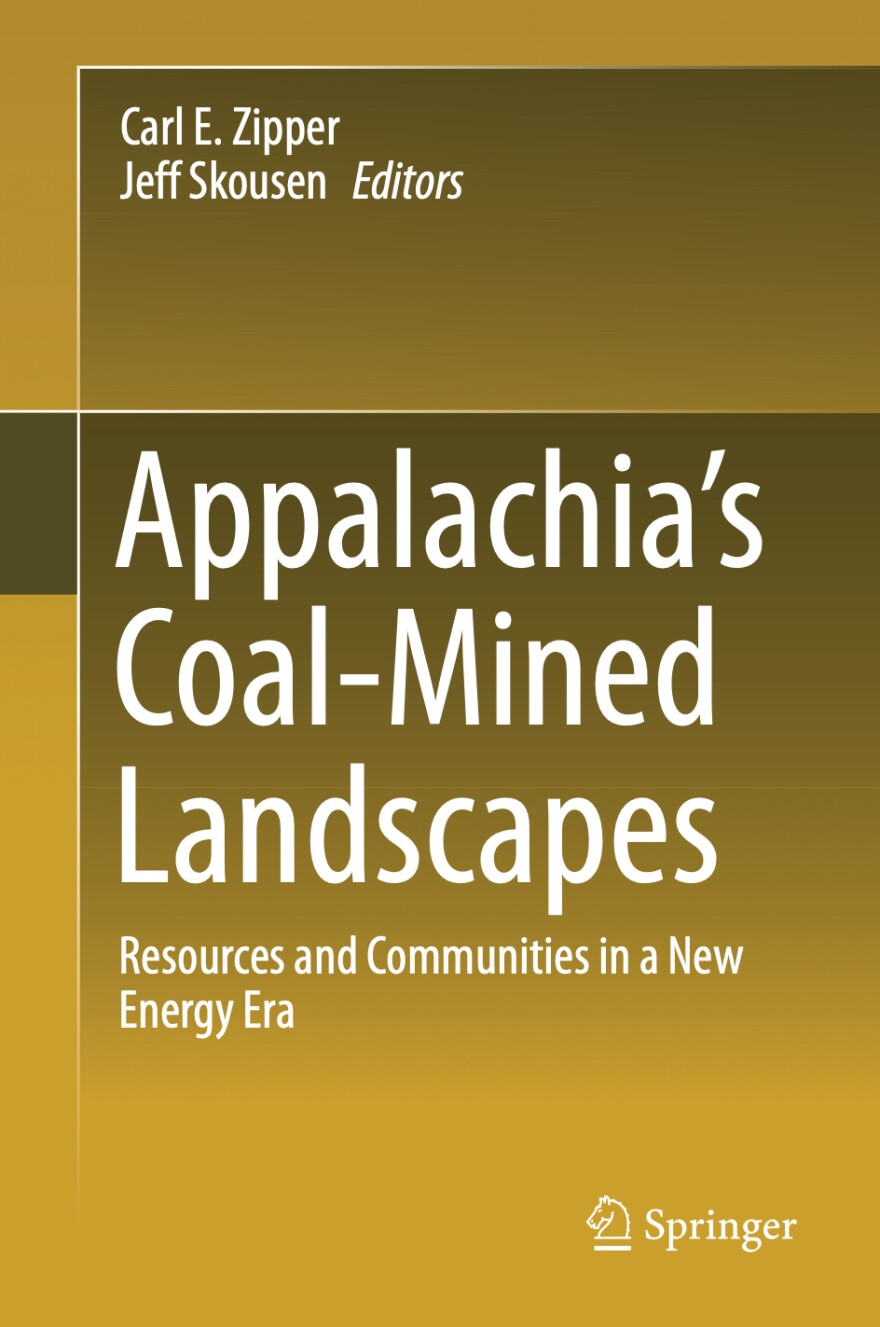For more than a hundred years, coal from Appalachia helped power the nation and the world. But that’s changing as new forms of clean energy emerge. A new book documents the rise of coal and its eminent decline, when coal is no longer king.
Without coal, there might never have been an industrial revolution. But the new revolution in cleaner energy is clearly coming, so scientists from Virginia Tech and West Virginia University, set out to document everything they could find, regarding the coal economy of the past 2 centuries and a way of life that sustained communities.
“The title is, “Appalachia, Coal, Mined, Landscapes, Resources, and Communities in a New Energy Era.”
Carl Zipper is professor emeritus in the School of Plant and Environmental Sciences at Virginian Tech.
“When my co-editor and I started the book, we expected to focus it on our areas of research. We both worked with lands, waters, plants, aquatic, biota in Appalachia, coal, mine landscapes. That's where our research has been both of us for several decades. But as we began discussing the project among ourselves, we realized that we really need to bring in some people, you know, it's not just about land and water and animals. It's also about people. And when I say it, I mean, the effects of Appalachia of the, how mining has affected Appalachia.
Their research found that people in coal communities routinely suffered more illness and other hardships. And while coal salaries can be quiet high, they typically support not just an entire household, but often others in the extended family as well. And when one coal job goes, a lot of people may lose their own livelihoods. Not to mention that once a coal mine has been abandoned for whatever reason, it leads to problems.
“And it is possible to take these lands and to convert them to alternative uses even after the coal mining, has finished. And we do have a chapter in the book about that. Typical uses are reforestation, trying to establish native trees on the mine sites, livestock grazing would be another post mining land use, which can be implemented when the lands are suitably located. It would appear that they have a lot of potential for use and renewable energy, especially solar.
But in most cases, that’s not happening, and those abandoned mine lands, do not just age gracefully
“Many of your listeners are well aware of the environmental effects of coal mining and coal burning. The landscape is left in a altered state. And not only do they affect the climate, but they affect human health, if not managed with appropriate pollution controls. Those pollution controls are costly. There are many other ways of generating electricity today that are less costly than generating them with coal.”
Zipper, who has studied coal all his career, says, it’s time for a transition away from coal.
“And I say that with great respect to the men and women who were involved with the mining of coal, for them, people in communities that have been economically dependent on coal. And I say it also with some sorrow for how that leaves them or how that affects them.”
He says he strongly supports the transition to renewable resources, even as it remains unclear, at this point anyway, how green energy can supply enough power for enough time.
“I definitely support transitions to less environmentally damaging energy sources. If history has taught us anything, is that technology develops over time. And I think if we were, to automatically shut off all of the fossil fuel energy and try to rely on the renewable sources the world economy would be in a heap of trouble. But technology develops. The technology will become better with time. And that's what we have to hope for.
And even though coal, is not a renewable resource, there’s still plenty of it left in the ground, that will continue to be needed,says Zipper though perhaps, as many environmentalists hope, not at the levels it once was.


